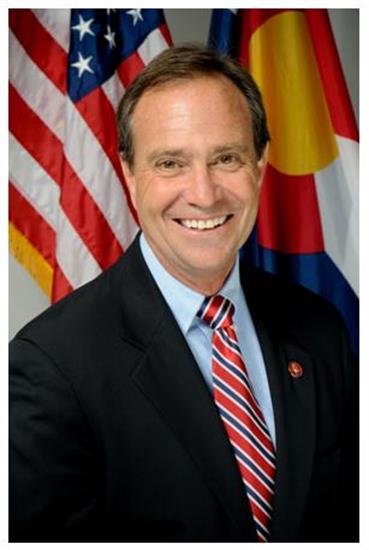In another effort to get his bipartisan SAFE Banking Act across the line, U.S. Rep. Ed Perlmutter (D-CO) on Friday filed the bill as an amendment to the massive domestic spending bill, the America COMPETES Act of 2022.

The Secure and Fair Enforcement (SAFE) Banking Act, H.R. 1996, which Perlmutter introduced in March 2021 and which currently has 180 cosponsors, would allow marijuana-related businesses in states with some form of legalized marijuana and strict regulatory structures to access the banking system and reduce the public safety risk in communities across the country.
“Cannabis-related businesses — big and small — and their employees are in desperate need of access to the banking system and access to capital in order to operate in an efficient, safe manner and compete in the growing global cannabis marketplace,” the congressman said in a Jan. 28 statement.
Forty-seven states, four U.S. territories, and the District of Columbia — representing 97.7 percent of America’s population — have legalized some form of recreational or medical marijuana, including CBD, according to Perlmutter’s staff, which noted that current law nevertheless restricts legitimate licensed marijuana businesses from accessing banking services and products, such as depository and checking accounts.
The result is that such businesses must operate in all cash, creating a serious public safety risk for communities that invites theft, robberies and burglaries, according to his statement.
As an amendment to the America Creating Opportunities to Meaningfully Promote Excellence in Technology (COMPETES) Act of 2022, Perlmutter’s bill would generally prohibit a federal banking regulator from penalizing a depository institution for providing banking services to a legitimate cannabis-related business, according to the congressional record bill summary.
Additionally, proceeds from a transaction involving activities of a legitimate cannabis-related business would not be considered proceeds from unlawful activity, which are subject to anti-money laundering laws.
The amendment also would provide that a federal banking agency may not request or order a depository institution to terminate a customer account unless the agency has a valid reason for doing so, and that reason is not based solely on reputation risk, the summary says.
“The SAFE Banking Act is the best opportunity to enact some type of federal cannabis reform this year and will serve as the first of many steps to help ensure cannabis businesses are treated the same as any other legal, legitimate business,” Rep. Perlmutter said.
To date, the SAFE Banking Act has passed the U.S. House of Representatives five times, most recently in September 2021 as an amendment to the fiscal year 2022 National Defense Authorization Act, from which it was eventually stripped.
And despite significant support in the U.S. Senate, where the identical bill, S. 910 has 40 bipartisan cosponsors, the legislation has remained stalled in the chamber.
“I will continue to pursue every possible avenue to get SAFE Banking over the finish line and signed into law,” said Perlmutter, who does not plan to seek re-election in November.
The America COMPETES Act, which would strengthen semiconductor production in the United States by authorizing $52 billion in domestic aid, could pass the House by March 1. First, though, two versions of the gigantic spending bills must be reconciled by a conference committee, though U.S. Senate Majority Leader Chuck Schumer (D-NY) said in a recent news release that he hopes to “quickly negotiate a final bill for the president to sign into law.”